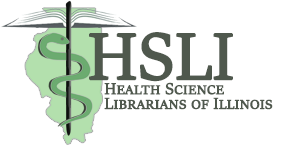(via Amanda Boyer, Susquehanna University)
We are collecting chapter proposals for an upcoming, edited ACRL publication, Supporting Neurodiverse Students in Libraries (working title, forthcoming Summer 2025).
Universities and colleges are seeing a rise in neurodiverse students enrolling in higher education, and due to the pandemic, more students are reporting issues with anxiety and depression. Academic libraries must adapt their spaces, services, and resources to be accessible to neurodivergent users. The purpose of our book is to offer practical advice on how to make changes in academic libraries. We are looking for chapters written by academic librarians from various institutions to help information professionals understand the best way for them to apply these changes to their organizations. We especially encourage disabled and neurodiverse librarians to submit chapter proposals.
The editors have also chosen an open definition of neurodiversity for this volume to ensure the practices described in this book can be applied to the maximum number of students. We welcome articles about serving students with Autism Spectrum Disorder, ADHD, brain trauma, anxiety, depression, and more. We are especially interested in articles that address these conditions intersecting with other identities, but this is not required.
We are seeking chapters on academic libraries for the following sections:
Library Spaces
o Sensory-friendly study rooms
o Designated quiet spaces
o Wiggle/fidget rooms
Library Services
o Accessibility Librarians
o Flexible research consultations (online, in sensory friendly rooms, etc.)
o Steady break/de-stress programs
Library Instruction
o Universal design
o Fidgets for the classroom
o Sensory-friendly activities
Library Resources
o Bionic fonts
o Sensory-friendly color schemes
o Other accessible e-resources
Cross Campus Collaborations
o Student Government Association
o Counseling and Psychological Services
o Disability Services
o Community groups
Authors of accepted chapters will be expected to participate in an open peer review process. Each chapter will undergo review by other chapter authors before a thorough review by the editors.
Proposals should include an abstract (~500 words), and the final chapters will be about 2000-6000 words.
Submit your proposal here.
Proposals Due: Saturday, October 14, 2023
Notifications Sent: November 5, 2023
Chapter Drafts Due: January 31, 2024
Editors:
Amir El-Chidiac (elchidiac@susqu.edu)
Amanda Boyer (boyeram@susqu.edu)
Susquehanna University
